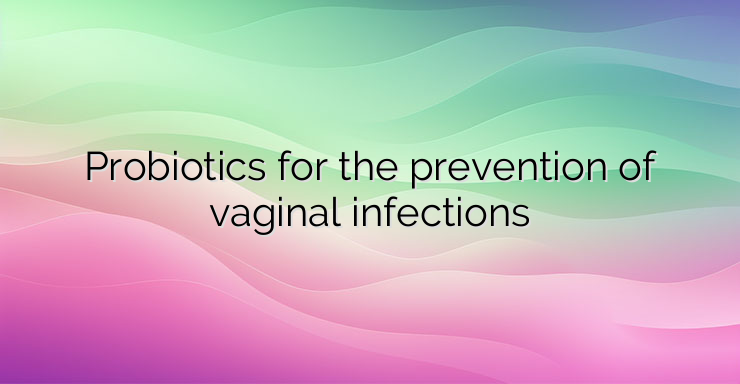Changes in discharge, itching, burning, pain when urinating or during intercourse – these are some of the most common symptoms of vaginal infections, which are estimated to affect 3 out of 4 women at least once in their lives. To avoid them, in addition to proper hygiene, taking probiotics seems to play a major role. What are vaginal probiotics? These are live microorganisms that help restore the microbiome in the vagina. This is achieved if they are applied in the right amounts and if only the missing microorganisms are used. The vaginal microbiome consists of different species of lactobacilli. Not all of them have the same capacity to colonize the vaginal mucosa. This should be taken into account when prescribing them. They are useful not only when the vaginal microbiome is altered by infection. They can also be used as a means of preventing infections. The microbiome is something that changes and evolves over time and can be affected by a large number of factors: Hormonal changes; Diabetes and disorders of the immune system; Menstruation and intercourse; The use of irritating soaps or spermicidal products can change its balance, as can the intake of certain drugs – antibiotics, oral contraceptives and others. make conception difficult. Specific cultures of lactobacilli are being studied to determine which may be most appropriate in these cases. How to take probiotics? There are two types of probiotics – vaginal and oral. Those that are administered orally are usually in capsules, and those that are administered vaginally are in soft capsules, ovules. The dose is determined by the gynecologist depending on the needs and the specific case. How to protect the vaginal flora? To maintain vaginal health, it is recommended to avoid the use of perfumed products for intimate hygiene, as well as vaginal douches and underwear made of synthetic fabrics. Using condoms during intercourse is also recommended not only to avoid altering the vaginal microbiome, but also to protect against sexually transmitted diseases. When treated with antibiotics, it is highly recommended to take probiotics. In terms of diet, excess sugars should be avoided, which can harm the good health of the micro-organisms in the vagina. It is recommended to increase the intake of foods that protect the flora, such as yogurt and kefir, fermented vegetables and dark chocolate. Lactic acid itself helps to improve acidity in the vagina. The amount of probiotic in yogurt is far below the recommended dose to be effective, so it must be taken in addition. There is usually only one strain of lactobacilli in yogurt, which is why when taking probiotics, a mixture of several of them is usually recommended – L. crispatus, L.gasseri, L. jensenii, L. vaginalis. References: https://www.sabervivirtv.com/ginecologia/probioticos-vaginales-como-usar-infeccion-vaginal_3937


Leave a Reply